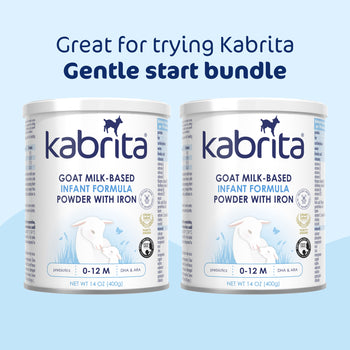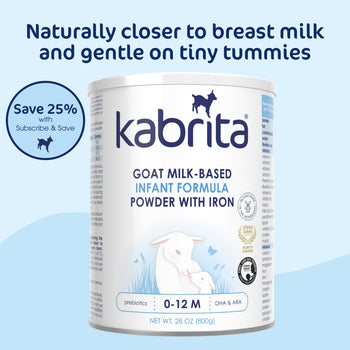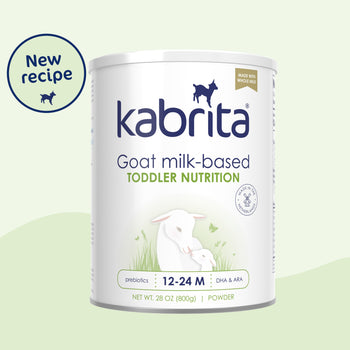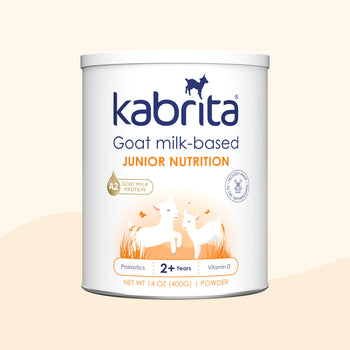Thinking of making homemade baby formula? Understand the risks of homemade baby formula.
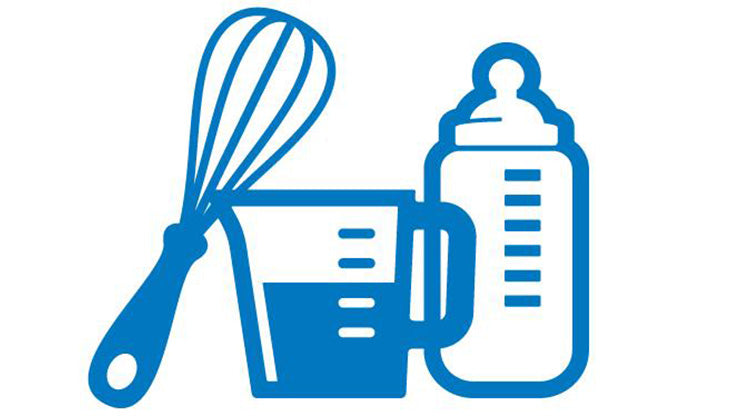
Feeding choices can be complicated and all families try to do the best for their baby. For families looking for the gentlest and most natural formula option for their little one, commercially available formula may not feel like the ideal choice. Read on to learn about why experts do not recommend making homemade baby formula.
Breast milk is the gold standard
Breast milk is the optimal source of nutrition for infants in their first year of life. However, if you need to supplement your breast milk, or cannot or choose not to breastfeed (and you baby is under 12 months), then you will need formula.
Babies require critical nutrients for optimal development
Infant formula is patterned after the nutrients in breast milk. As such, the FDA sets guidelines for specific amounts of nutrients that must be in commercially available infant formula. All commercially available infant formulas in the US are adapted and fortified to meet babies’ unique nutritional needs.
Cow and goat milk are not nutritionally suitable for infants. Cow milk, for example, lacks adequate vitamins C and K, and minerals iron and manganese; goat milk is low in folate, iron, and vitamins D and B12. Goat milk is also relatively high in protein and sodium.
Formula serves as the sole source of nutrition for babies before first foods are introduced. Slight nutritional variations in formula can have big consequences over weeks or months. Homemade formula recipes and ingredients are inconsistent; and even small errors during preparation can lead to serious nutritional imbalances over time.
Homemade baby formula may provide either too much or too little nutrients critical for baby’s optimal development.
Regulatory guidelines for safe infant formula
In the US, all commercially available infant formula must complete a clinical trial demonstrating safety, growth and tolerance before being sold; guidelines also determine which ingredients are permitted for use.
These same formulas must be manufactured in a facility that has completed an FDA audit, performs strict microbiology testing (for harmful pathogens), and has demonstrated nutrient stability (through shelf life studies).
Many homemade formula recipes call for the use of raw or unpasterurized milks, which may be a source of bacterial infections. The other ingredients used in homemade formula are unregulated and may not be suitable for infants. And, the ingredients and home preparation environments may increase risk of contamination and exposure to harmful pathogens.
Homemade baby formula may seem like an all-natural approach to infant feeding, but it does not meet the safety standards of commercially available infant formula.
Experts do not recommend homemade baby formula
Because of the potentially very serious health concerns that may result from homemade baby formula, neither the FDA nor the American Academy of Pediatrics recommend that consumers make infant formulas at home.

Ultimately, every baby and every situation is unique. Your healthcare professional is the best resource to guide your feeding decisions. If you are interested in homemade baby formula, we suggest you take this information to your provider and discuss feeding choices together, in order to make an informed decision.
